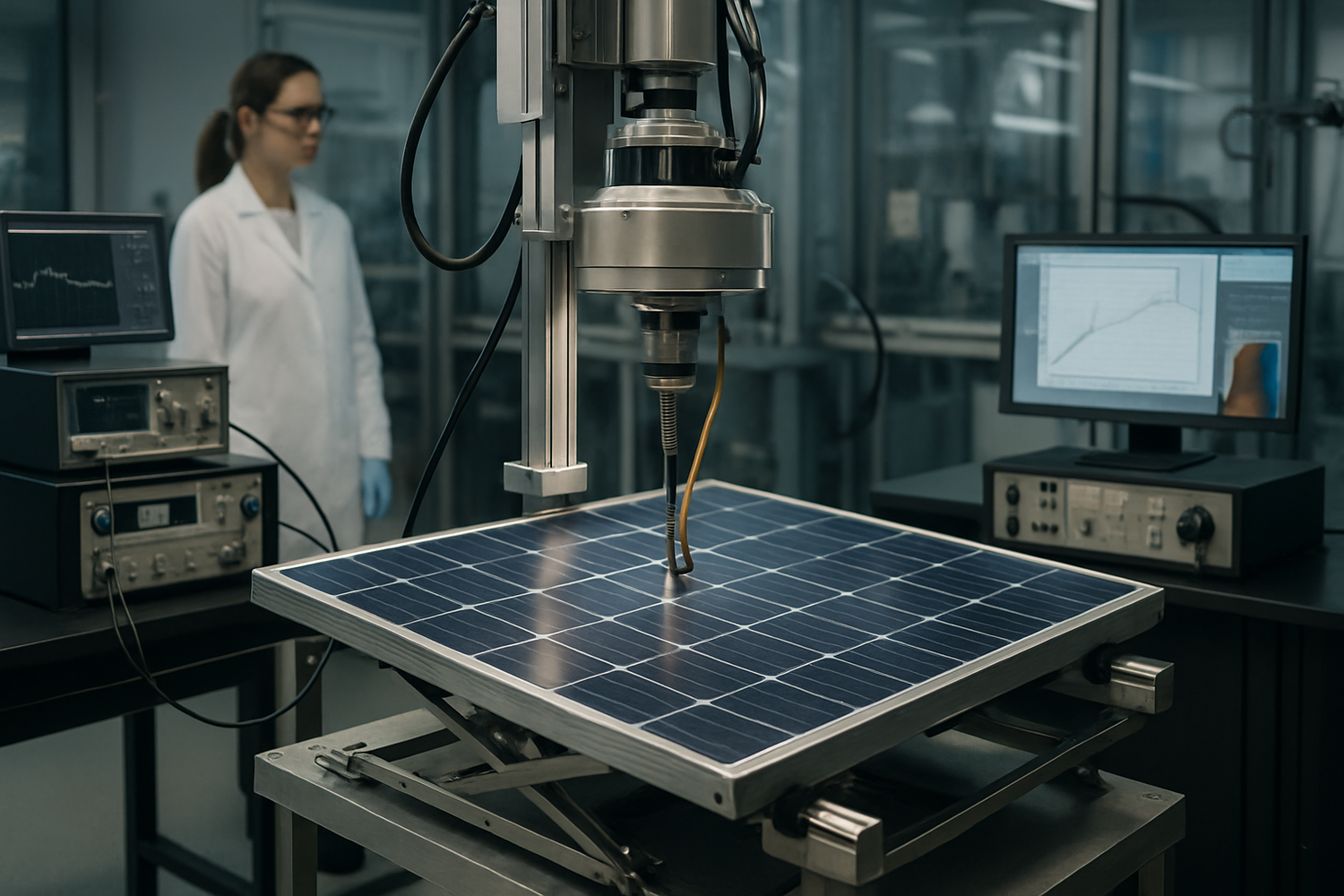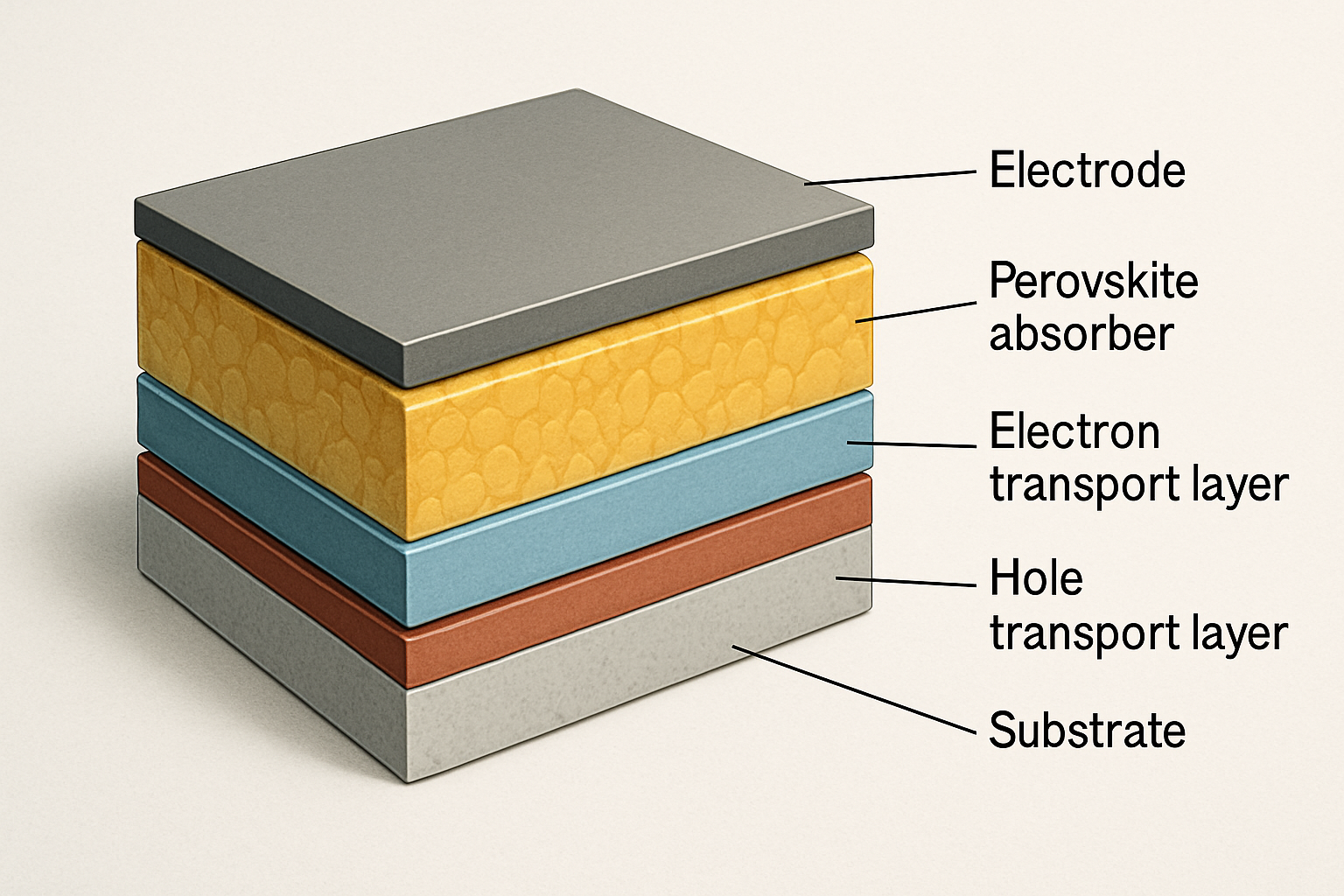The global shift towards renewable energy sources places solar photovoltaics (PV) at the forefront. As demand for solar power grows, ensuring the reliability and longevity of PV modules becomes paramount. While international standards have played a role in mitigating early failures, a critical need exists for more rigorous testing to differentiate product quality and predict long-term performance. This article details the NREL Qualification Plus program, a voluntary standard designed to enhance PV module reliability beyond basic tests.

The Gaps in Existing PV Standards
For years, the International Electrotechnical Commission (IEC) has established standards like IEC 61215 for crystalline silicon modules, IEC 61646 for thin-film modules, and IEC 62108 for concentrator PV modules. These standards have been instrumental in reducing “infant mortality” – early failures – in PV modules.
Why Current Tests Fall Short
Despite their utility, current IEC tests were not designed to fully identify how modules degrade or fail in diverse climates and system configurations. They also do not effectively differentiate between products with short or long operational lifetimes, nor do they quantify module lifetime for specific applications or environmental conditions. For instance, IEC 61215 focuses on ensuring modules can withstand prolonged environmental stress without losing more than 5% degradation in performance over a simulated 5-10 year lifespan, but it is not an indicator of overall reliability or durability.
Many commercial modules pass these qualification tests with minimal adjustments, meaning the tests do not provide a clear means of ranking products based on superior quality or extended durability. Furthermore, certification of a module type may only offer assurance for one module out of millions, depending on the robustness of the quality assurance system.
The Need for Enhanced Differentiation
The solar industry requires a method to distinguish truly superior PV products. Without widely recognized standards or labels that inform customers about the behavior, performance, and longevity of various PV products in specific environments, making informed decisions about long-term investments can be challenging. This gap highlights the necessity for testing protocols that go beyond basic compliance to assess long-term resilience and performance.
Introducing NREL Qualification Plus
Recognizing the limitations of existing standards, the Department of Energy’s SunShot Initiative and the National Renewable Energy Laboratory (NREL) collaborated to develop a voluntary standard that transcends current test protocols: NREL Qualification Plus.
What is Qualification Plus?
NREL Qualification Plus is a set of advanced testing methods developed to improve PV reliability. This program was created on an accelerated schedule in 2013 over nine months, aiming to qualify superior PV modules. It represents a proactive step to address the shortcomings of traditional qualification by introducing more stringent and comprehensive evaluations.
The Qualification Plus tests are specifically recommended for crystalline silicon modules with glass/polymeric backsheet construction using ethylene vinyl acetate (EVA) encapsulant. While initially optional, these tests provide a pathway for manufacturers to demonstrate enhanced durability and reliability.
How It Elevates PV Quality
The Qualification Plus program goes beyond standard IEC tests by applying existing tests for longer durations or combining them in specific sequences. This approach aims to identify technical weaknesses that could lead to field failures, thereby preventing them. The program also includes a required audit of the quality management system, ensuring consistent manufacturing processes.
By focusing on wear-out mechanisms and long-term degradation, NREL Qualification Plus helps identify modules that can maintain their performance over an extended operational life, typically 25 years or more. This is crucial, as the safe operation, requisite service life, reliability, and durability of PV modules become increasingly important for the value of an investment.
The Impact and Benefits of Enhanced Qualification
Adopting higher standards like NREL Qualification Plus offers significant advantages for the solar energy sector, from improving product longevity to fostering greater market confidence.
Real-World Performance and Longevity
Modules that undergo rigorous Qualification Plus testing are better positioned to deliver consistent performance over their warranted lifespan. Well-constructed solar panels have demonstrated real-world lifespans of 25 to 30 years or more, with performance analyzed across various climates. Studies by NREL have shown that modern solar panels typically degrade at a low rate, around 0.5% to 0.8% per year. This means after two decades, many panels still retain 85-90% of their original power output.
Enhanced testing helps manufacturers select high-quality, durable materials and implement rigorous quality control measures, which are crucial for a panel's ability to withstand harsh environmental conditions like temperature fluctuations, moisture, and wind. For example, temperature fluctuations can cause mechanical stress and microscopic cracks, while high humidity accelerates degradation. Robust testing helps mitigate these issues.
Investor Confidence and Market Differentiation
For investors and project developers, the assurance of superior PV quality translates into reduced financial risk and more predictable returns. Certifications that go beyond basic compliance, such as those from NREL Qualification Plus, offer a superior level of consistent quality, increased safety, and lower power degradation. This robust qualification supports the technical bankability of projects.
Similar to how Brazil's Energy Research Office (EPE) uses “technical qualification” to ensure projects meet high sustainability and feasibility standards, advanced PV module qualification builds confidence among investors. It helps prepare projects that are more likely to succeed, attracting private investment into the renewable energy sector.
Moreover, improved quality through diversified module qualification and certification of developers, designers, and installers is a key recommendation for strengthening the PV industry. This differentiation helps consumers and businesses choose products that offer genuine long-term value and reliability, supporting the broader adoption of solar energy solutions.
Implementing and Adopting Higher Standards
The journey towards universal adoption of advanced PV quality standards involves collaboration across the industry and continuous refinement of testing protocols.
Industry Endorsement and Adoption
The NREL Qualification Plus standard has received endorsement from industry co-authors and more than 20 peer reviewers. It is actively being implemented by major standards testing laboratories in the United States, including TUV and Intertek, and in several states. This widespread adoption by reputable testing bodies underscores the value and necessity of more stringent qualification processes.
NREL also actively participates in writing and discussing reliability, safety, and test and evaluation standards with international organizations like the International Electrotechnical Commission Technical Committee 82. This collaborative effort ensures that the advancements made through Qualification Plus can influence and integrate into broader international standards, fostering global improvements in PV reliability.
The Future of PV Quality Assurance
As the PV industry continues to grow, the importance of robust quality assurance systems will only intensify. The development of new standards that address wear-out mechanisms is crucial for improving the durability and reliability of products deployed in the field. This includes establishing qualification methods for the durability of PV module designs tailored to specific climates and mounting systems, and developing guides for auditing quality management systems to ensure consistent manufacturing.
The ongoing efforts to refine and implement advanced testing methods like NREL Qualification Plus are vital for the sustained growth and trustworthiness of solar energy. By ensuring that solar panels perform reliably for decades, we can accelerate the transition to a sustainable and energy-independent future.
Frequently Asked Questions
What are the primary limitations of current IEC PV module tests?
Current IEC tests primarily focus on preventing early failures (“infant mortality”) and do not fully assess how PV modules degrade over their entire lifespan in various climates. They also do not effectively differentiate between modules with varying long-term durability or provide rankings for superior quality.
How does NREL Qualification Plus differ from standard IEC testing?
NREL Qualification Plus is a voluntary standard that extends beyond basic IEC protocols. It involves more rigorous, extended-duration testing and specific test sequences designed to identify wear-out mechanisms and predict long-term performance and reliability, rather than just initial compliance.
Who benefits from enhanced PV module qualification programs?
Manufacturers benefit by demonstrating superior product quality and gaining a competitive edge. Consumers and project developers benefit from more reliable, longer-lasting solar panels and reduced financial risks. The entire renewable energy sector benefits from increased confidence and accelerated adoption of solar technology.





Leave a comment
All comments are moderated before being published.
This site is protected by hCaptcha and the hCaptcha Privacy Policy and Terms of Service apply.